As we age, our skin gradually loses its youthful radiance and elasticity, resulting in wrinkles, sagging, and dullness. Due to the fast-paced life, we are often faced with skin problems caused by environmental pollution, stress, and unhealthy lifestyles. However, with the right skincare regimen and a healthy lifestyle, we can slow down the aging process and give the skin a youthful and vibrant glow.
There are a lot of skin care products available nowadays on the market that claim to solve the problems of acne scars, wrinkles, sagging skin, and redness of sensitive skin. But you may not know that their therapeutic effects for skin rejuvenation are not similar to those of phototherapy. vessels while stimulating collagen production to improve. With the advancement of science and technology and the development of medical cosmetology, photorejuvenation has gradually attracted people's attention. Photorejuvenation is a treatment that uses light technology to improve the appearance of the skin. Photorejuvenation improves skin elasticity and firmness by selectively absorbing pigments and blood vessels in the skin, thereby reducing pigmentation and vascular dilation.
Red light therapy stands out in the field of photorejuvenation as a new non-surgical cosmetic method. Today, I will introduce the red light therapy principle, its application, and the precautions for photorejuvenation in depth to help readers better understand its role.
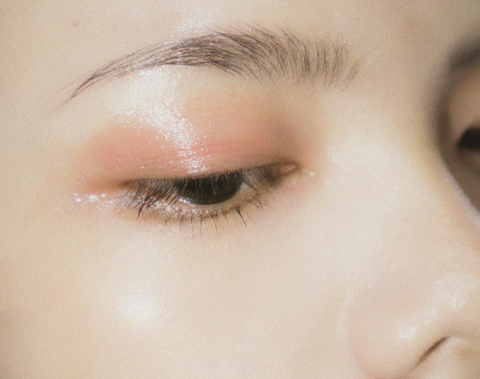
Principle of Red Light Therapy
Red light therapy contains a bioactive red or near-infrared light with a wavelength of 630nm and 850nm to trigger skin rejuvenation. Red light therapy works by acting on the mitochondria of the skin cells. It has the characteristics of high purity, a strong light source, and uniform energy density. Red light therapy provides energy to cells, allowing them to work more efficiently, and it has remarkable effects on skin care and health care treatment, promoting skin repair, cell growth, and other benefits.
What skin problems can be solved with Red Light Therapy?
- Spots removal
Red light therapy triggers collagen production in the skin; its main target is pigmentation. It can effectively treat epidermal pigmented lesions such as freckles, melasma, age spots, etc., caused by photoaging and natural aging. It also treats acne pits, acne scars, and enlarged pores.
- Treatment of acne
RLT can be used to treat mild to moderate acne. It should not be used when severe infections are present. It can be used in combination with other skincare products.
- Skin rejuvenation
Red light acts on the skin tissue, producing photothermal and photochemical effects, which can rearrange and regenerate the collagen and elastic fibers in the skin. It restores the elasticity of facial skin, disappears or lightens under-eye wrinkles and fine lines, and shrinks pores.
- Fix Sunburn
RLT irradiation stimulates the proliferation of collagen on the face and exerts anti-inflammatory effects, which reverse sun-damaged skin from weekend outings.
Advantages and Indications of Red Light Therapy
- Non-invasive
Compared to traditional cosmetic surgical methods, photorejuvenation with RLT is a non-invasive treatment that requires no surgery or injections, and there is almost no downtime, allowing patients to return to normal life immediately.
- High safety
RLT has been proven to be a safe and effective treatment after years of clinical application. The RLT device is rigorously certified and operated by a professional doctor for specific skin diseases, which minimizes the risk of complications.
- A wide range of application
RLT can be used to improve a variety of skin problems, such as pigmentation, vasodilation, fine lines, enlarged pores, etc. In addition, its photorejuvenation effect can improve skin texture and enhance the overall brightness and radiance of the skin.
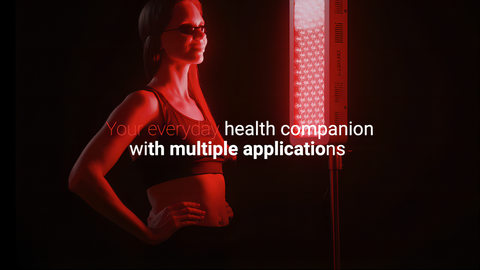
Applying Red light therapy on the skin for photorejuvenation
- Choose a high-quality device that contains a suitable wavelength, typically around 630-850 nm , suitable for photorejuvenation.
- Before proceeding with professional red light therapy for skin conditions, the doctor needs to first assess the patient's skin condition and develop a personalized treatment plan. The doctor then uses an RLT device to irradiate the skin precisely. The whole treatment usually lasts 10–30 minutes and is not painful.
- For at-home usage devices, follow the treatment guidelines for RLT duration, such as frequency, recommended dosage, and distance from the skin.
- Cleansing is the first step before using RLT. Use a gentle cleanser to remove dirt and makeup residue. During RLT, try not to wear makeup and do not use soap to over-clean. RLT removes some of the dirt and pores in the stratum corneum, and the skin becomes more sensitive.
- After therapy, the skin's metabolism is accelerated, the water demand increases,and the skin is prone to dryness. Moisturizer can be used appropriately to increase the skin's moisture content, repair the epidermis, and reshape the skin barrier.
- The skin is more likely to absorb ultraviolet energy after RLT. Ultraviolet rays can stimulate the melanocytes in the skin by producing many melanosomes, causing pigmentation. So, post-red light therapy sun protection is very important.
Precautions of Red Light Therapy
- Due to the different skin characteristics and problems of each person, the treatment effect of red light therapy varies from person to person. Prior to treatment, the doctor will assess the patient's skin condition in detail and develop a personalized treatment plan.
- Red light therapy is generally safe and effective, but in rare cases, adverse reactions such as temporary redness, bruising, or pigmentation may occur. Therefore, patients should be fully aware of the possible complications of treatment before proceeding with it. If the skin is red or the epidermis is broken after RLT, an ice compress can be applied. However, consult the dermatologist as soon as possible if there is serious skin damage.
Conclusion
With the development and popularity of photorejuvenation, beauty and wellness lovers are increasingly turning to red light therapy. It is a non-invasive cosmetic technique that improves the quality and appearance of the skin through the irradiation of red light. It has the advantage of being safe and effective, with no downtime, and is suitable for a wide range of skin concerns.
While we can't control our age, red light therapy helps to maintain a youthful state by benefiting emotional and psychological health.



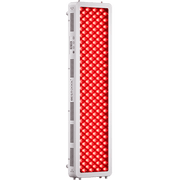








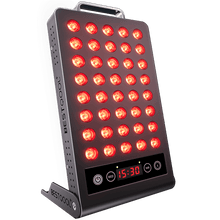
 Small
Small
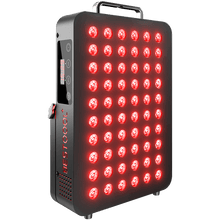
 Moderate
Moderate
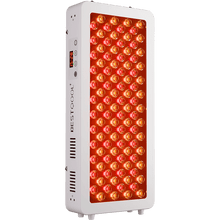
 Moderate
Moderate
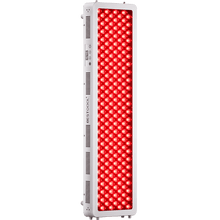
 Moderate
Moderate
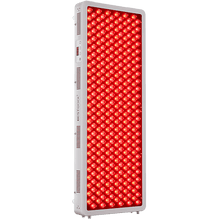
 Full
Full



